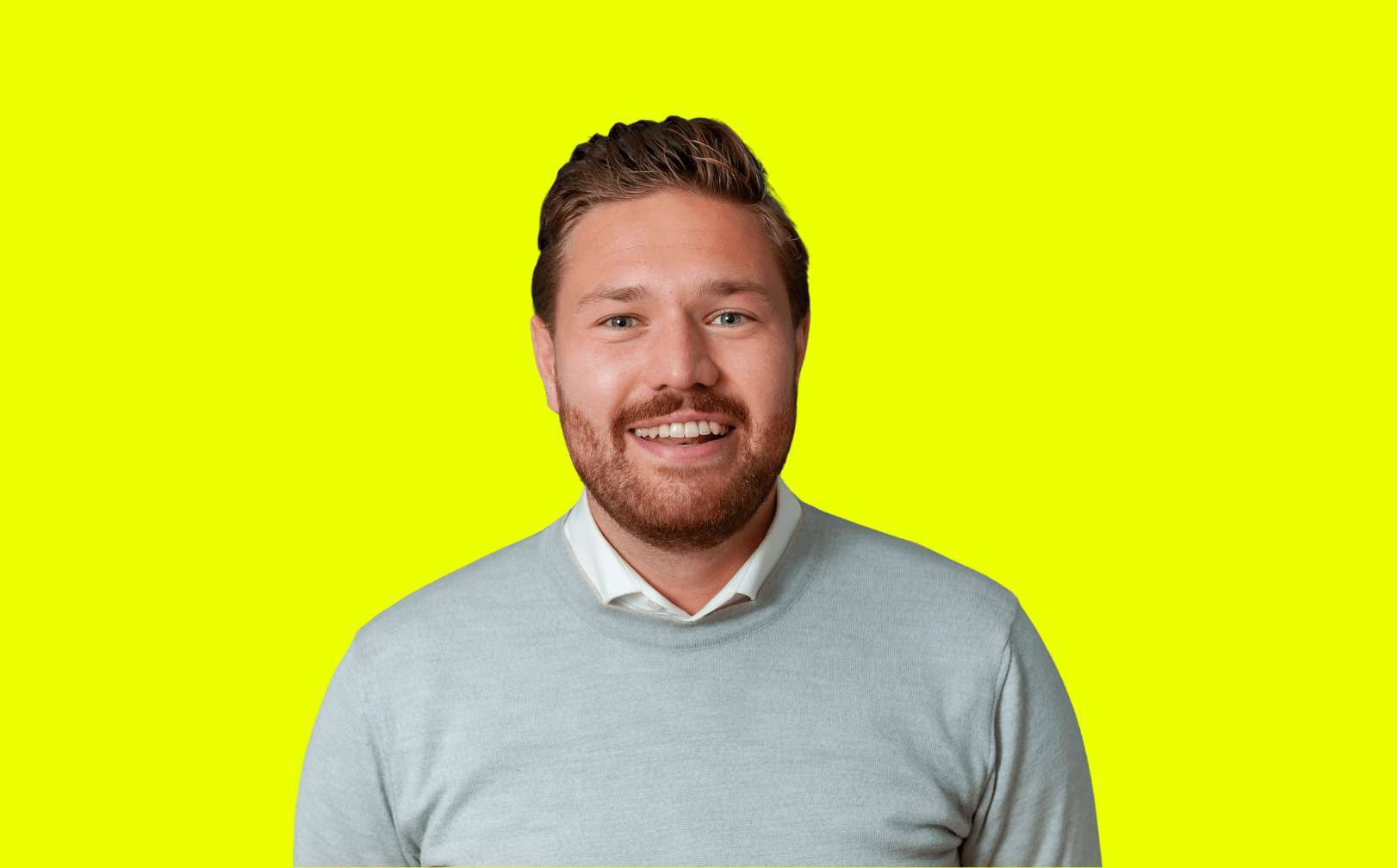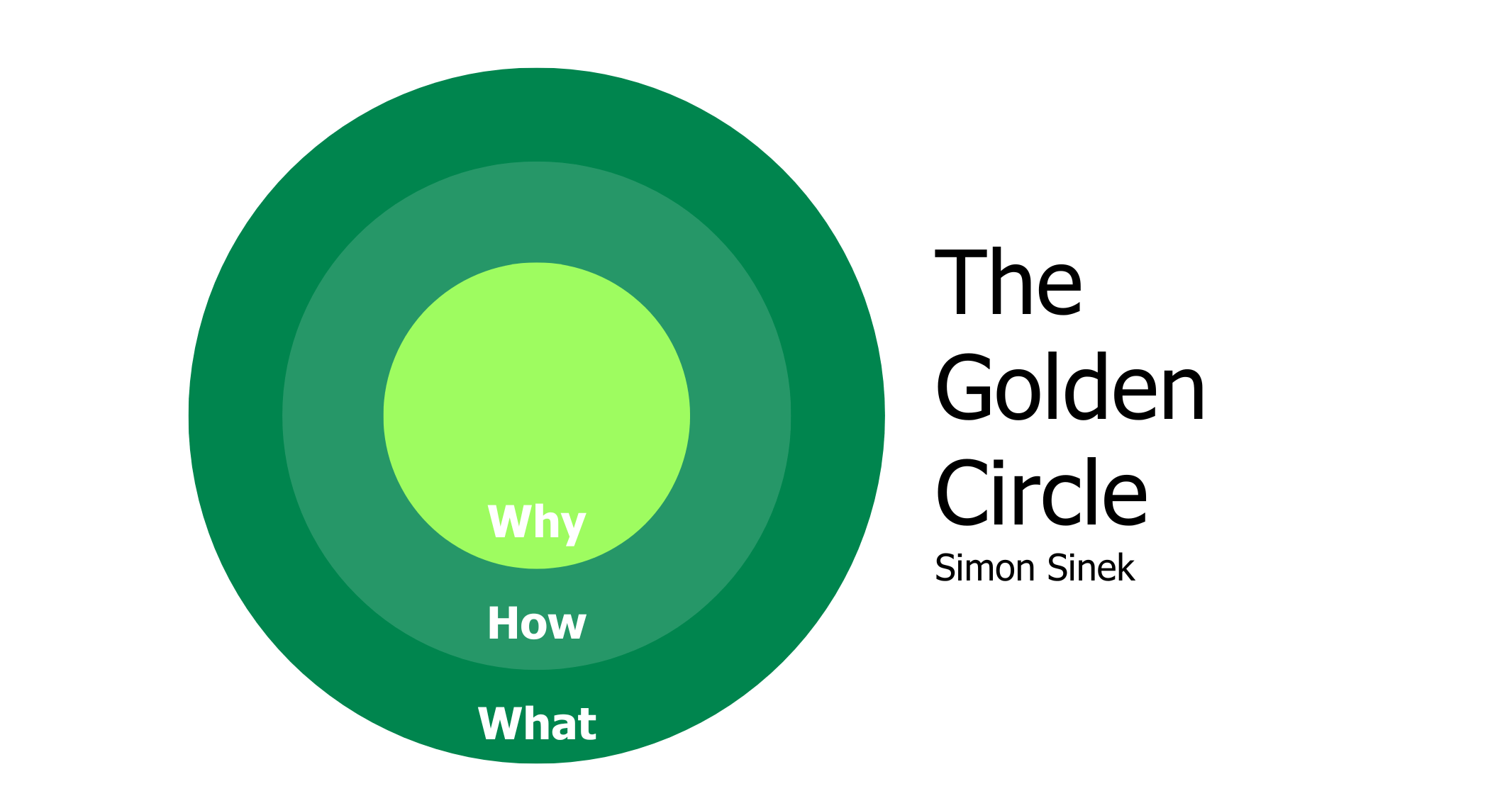Discover your motivations with the golden circle

How do you know what your dream job is? And why you like your job? Talent manager Floris Foekens coaches recent graduates who are starting their first 'real' job. He helps young professionals in their personal development using Simon Sinek's Golden Circle. This model helps you as a starter to discover what you like and where your passion lies. In this blog you can read how Floris applies the model and why it is useful to discover early in your career what you get out of bed for.

The Golden Circle of Simon Sinek
'Many people and organizations are good at telling what they do, such as the tasks they perform or a product they make. There are slightly fewer people who can also tell well how they do it. And there are very few people who can explain why they do what they do," Floris says.
'That's what the Golden Circle is based on,' Floris continues. 'The model, devised by leadership guru Simon Sinek, consists of 3 circles. From the inside out, these are the why, how and what. Organizations and leaders who are good at putting into words why they do what they do, inspire others with this. This is due, according to Sinek, to the order of communication. Most organizations tell about themselves from the outside in: they start with what they do (the what), followed by how they do it (the how). Inspiring leaders and organizations think and communicate precisely from the inside out: their why is the starting point and the how and the what are a logical consequence of this. '
An example: Apple
Apple is a good example of the Golden Circle theory, as mentioned in one of Sinek’s videos. Tim further clarifies: ‘Apple started as a computer manufacturer, but nowadays, the moment Apple releases a watch; everyone is clambering to get their hands on one.’
If Apple were to communicate like most other companies, their ads would sound a little like this:
“We make great computers. They are beautifully designed and simple to use. Want to buy one?”
But Apple does things differently:
“In everything we do, we believe in challenging the status quo. We believe in thinking differently. The way we do this is by making our products beautifully designed and simple to use. We just happen to make great computers. Want to buy one?”
‘You can see that they’ve flipped the communication sequence.’ Says Tim. ‘And the why, the reason why they do what they do, is clear and inspiring. That’s why people love Apple products and will continue to love them – even if the products are watches instead of computers. ‘People don’t buy what you do; they buy why you do it.’’
The why: discover what makes you happy
The Golden Circle is also very valuable for yourself, as an individual. What are you getting out of bed in the morning for? What is your intrinsic motivation? The model is very useful in my profession as a talent manager. I help guide young people at the start of their careers by getting them to think about why they do what they do. 'And that has a lot of benefits, ' Floris explains.
He finds that many young people find it difficult to talk about their future plans:
'As a starter, you are fully engaged in your first job. And before you start this job, you often don't even know it exists, let alone what comes next. It's hard to want something you don't yet know exists. '
'Your job can be thought of as the what, the outer ring of the Golden Circle. The model helps you look beyond your job and focus more on your why: what makes you happy.' According to Floris, it helps to ask yourself why you do what you do and why that makes you happy. 'The answer to those questions makes it a lot easier to think about what you want to do in the future. '
The cause of happiness as the starting point
The cause of someone’s happiness. It’s what Tim tries to figure out with all of the young professionals he speaks with. ‘It might sound easy, but most people don’t know where their happiness comes from.’ Tim explains. That’s why he takes it bit by bit, asking questions every step of the way. ‘If I were to ask you what your dream job would be, you might not have an instant answer for me. But if I ask you to describe the last time you got home from work and thought, ‘wow, that was a great day.’ Or if I ask you to describe the tasks you enjoy doing at work and follow up with, ‘and what exactly do you enjoy about them?’ I’ll be able to find out so much more. The question behind the question is where we can find the cause of happiness. And in turn, the starting point for the future of a young professional.’
Tim mentions a starter currently enrolled in a Data traineeship at Solid Professionals: ‘This young professional finds it very important to be able to help people draw conclusions from complicated data sets. That takes her a step closer to finding the cause of her happiness because you can use this skill set in numerous functions. For example, she can delve into analysis: cleaning, integrating and interpreting data to find useful information, such as drawing up a report. Or she could focus more on stakeholder management and translate data for different teams within the organisation.’
Why finding your 'why' will help you launch your career
What you often see, according to Tim, is that startups follow a natural path: 'From a junior position that they're pretty okay with, they grow in the same direction to medior, senior and manager without really thinking about it . And sometimes they then end up in a role that is far removed from what they liked,' which is why it is useful to discover early in your career what your motivations are. Once you know that, you grow into different positions that contain elements that make you happy.
In short, by mapping out your drives:
- Have a clear direction for your future.
- You won't be limited by job titles.
- You can find organizations that match your why.
- Know how to recognize that good match earlier in a job application.
- Experience more job happiness earlier in your career.

How we help you in your search
The best clients in the financial sector can be found via Solid Professionals. For recent graduates we offer traineeships n Finance, Risk, Data & IT. During your traineeship you will start working at one of our clients from day 1 and a talent manager like Tim will help you discover what makes you enthusiastic and motivated. Your talent manager thinks along with you, asks critical questions and helps you develop a personal plan. You also get a budget of €2,000 to spend on your personal development, for example for a Power BI, machine learning or stakeholder management training.